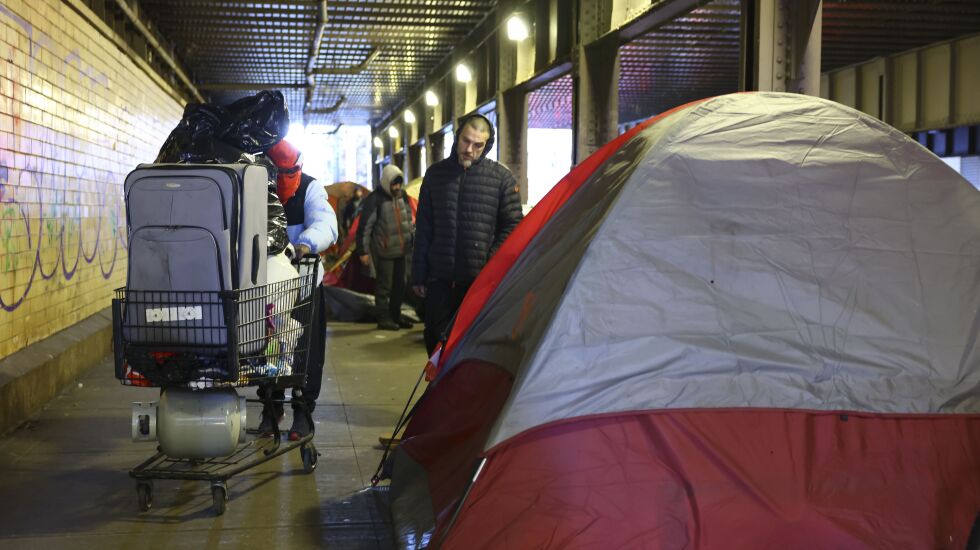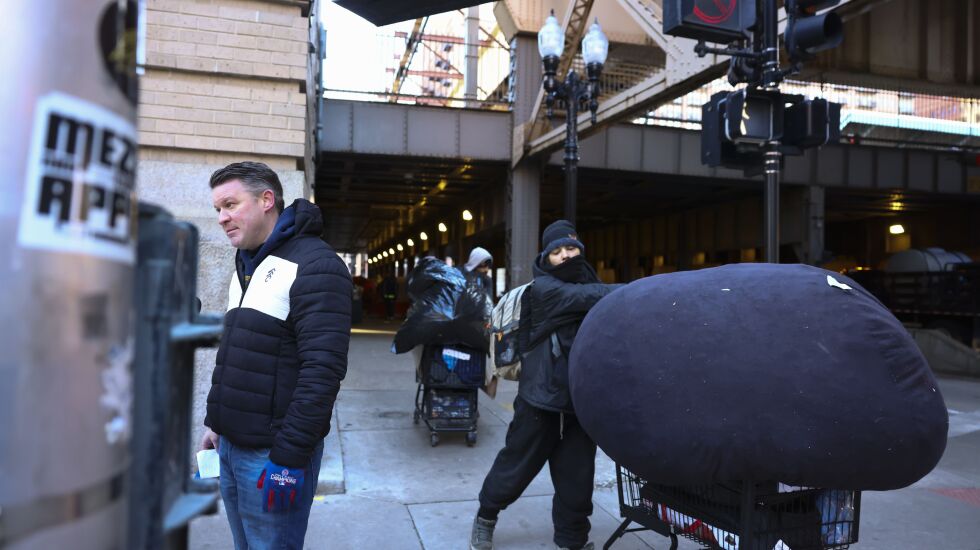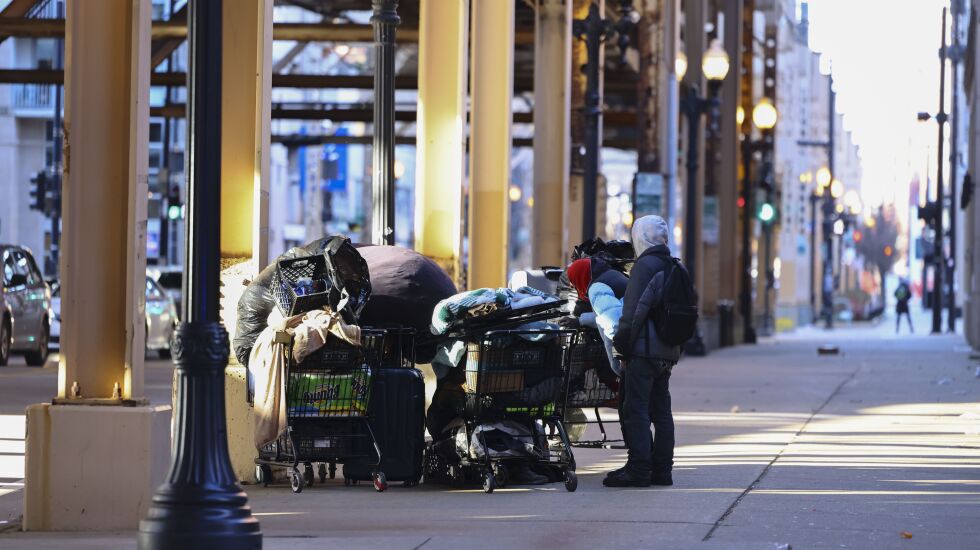
Johnny Figueroa packed up his things half-heartedly as volunteers and city employees lingered near his tent under the viaduct near Clinton and Fulton Streets Monday morning.
The city was in the process of clearing the viaducts for routine street cleaning, but Figueroa, 52, said he was planning to stay and protest the clearing of homeless people from the area. His resistance to moving isn’t for him, he said — he is scheduled to move into an apartment Thursday with the help of the organization Inner Voice, which provides affordable housing and support options to people in Chicago experiencing homelessness.
“It’s not even about me, it’s about those who come after me, the homeless child who’s yet to be born,” Figueroa said.

The homeless encampment where Figueroa has stayed for the last four to five months has been the center of scrutiny from neighbors and 34th Ward Ald. Bill Conway. Violent crime and drug deals run rampant, Conway said, and residents have complained of feeling unsafe. This month, a 59-year-old man was fatally shot in what Conway has called a magnet for crime in the area.
But Figueroa said not everyone in the encampment is into crime and drugs.
“Everybody who’s out here aren’t bad people,” he said. “Some of us have made bad decisions, but we’re not bad people.”
As Figueroa, a Navy veteran, threw away trash from his tent under a heating lamp powered by a propane tank, others followed suit. Grocery carts packed to the brim with clothes and garbage bags dotted the viaducts, suitcases lay half-full of clothes and winter hats, and gloves were strewn on the ground.

Signs announcing the off-street cleaning and power-washing were hung on the walls of the viaduct near the Clinton Green and Pink Line CTA stop as commuters made their way to work Monday morning.
Workers from Mayor Brandon Johnson’s office and the city’s Department of Family and Social Services coordinated with people to offer them shelter and resources. Seven people have been given shelter by the Department of Family and Social Services in the last week, and five more accepted rehousing help Monday. When offered rehousing, 15 people declined, according to Conway.
“You wanna offer people housing which includes treatment,” Conway said. “On the other hand, you have the police doing their job and trying to curb drug deals.”
Johnson and Conway have been caught up in a back-and-forth about how to handle the encampment. At a news conference after this month’s fatal shooting, he said previous plans to remove the encampment were halted after Conway didn’t vote the way the mayor wanted.

“The mayor’s office routinely will clean viaducts across the city ... but we want to treat people humanely who are living there. We won’t just throw away their tents,” said Cassio Mendoza, a spokesman for Johnson.
Conway said his goal is to make the area safer for everyone, whether they live in an apartment or under the viaduct. Similar off-street cleaning happens all over the city, whether homeless encampments are located there or not, he said. The cleaning is temporary, and it’s possible people could settle back in after it’s complete.
Some people leaving the encampment grumbled with frustration about moving.
“Right before Christmas they gotta do this,” one man said.

Jim Dolan, who works in veterans outreach at the Above and Beyond Family Recovery Center, said addiction sometimes plays a role in the housing situation of most people staying under the viaducts.
“It’s good that they’re doing this cleanup, but it’s disruptive as hell,” Dolan said. “It would be just like if you were in a natural disaster and you were uprooted from your home. Even though these aren’t considered homes, these are their homes.”








